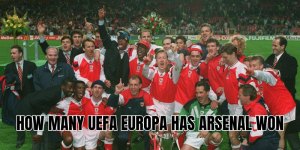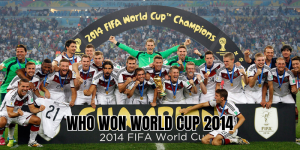Ever wondered do World Cup qualifiers go to extra time when teams are tied? At ModiFoot, we’ll cut through the confusion right away: in most cases, World Cup qualifying matches do not go to extra time. Tied matches are usually allowed in qualification, especially in group stages. But there are specific situations—especially in knockout or playoff ties—where extra time is used. Let’s break down when it happens, why, and some recent changes for the 2026 campaign.
What Determines Extra Time vs Draws

Group stage matches
- In qualification groups, teams usually play each other in round-robin format (home and away).
- If a game ends level after regulation (90 minutes), it ends as a draw. No extra time, no shoot-outs. Points are awarded (3 for win, 1 each for draw).
- Only when overall ranking or tiebreakers are needed do associations refer to set rules; but those don’t usually involve extra time during the match itself.
Knockout or playoff ties
- When qualifiers are decided via knockout ties (home-and-away or single elimination), and an aggregate score is used, extra time may come into play. If after both legs the aggregate is level, there might be extra time to break the tie rather than immediately going to penalties.
- In many confederations and in FIFA rules for certain qualification stages (especially for inter-confederation playoffs or final playoff rounds), the rules explicitly allow for extra 30 minutes if aggregate scores are even. If still tied, then penalties decide.
How It Works under the 2026 World Cup Format

The upcoming FIFA World Cup in 2026 introduces some new wrinkles, including a larger tournament (48 teams) and revised qualification/playoff formatss how extra time plays into the 2026 qualifiers.
- For home-and-away knockout formats within the qualifiers (or playoffs), if aggregate score is tied after both legs, 30 minutes of extra time will be played. If still tied, the tie is decided via a penalty shoot-out.
- In the inter-confederation playoff tournament for 2026, which decides the last few spots, extra time is part of the discipline if teams are tied after regulation in a knockout match.
Examples of When Extra Time Is Used
Here are clear examples from recent or upcoming qualification stages:
- In 2026 qualifying, certain playoff rounds follow knockout rules: aggregate, extra time, penalties.
- In UEFA Women’s qualifiers and related playoff or relegation/promotion matches, if a two-leg tie ends level, extra time is used. This is also happening under rules for the Women’s European Qualifiers and Women’s Nations League.
Exceptions & Confusions
There are also cases that cause misunderstandings:
- Some people assume any tied match in qualifying triggers extra time—this is false in group matches.
- Confusion arisesn playoff ties are described like knockout matches: “what happens if aggregate is tied?” If extra time is part of the format, it will be stated in the regulations for that specific stage.
- Some confederations may have their own rules (slightly different from one another) especially for smaller nations, or in continental formats—though FIFA’s general regulations tend to harmonize the approach for inter-confederation stages.
Why the Rules Are This Way
- Group stage matches allow draws because qualification is about consistency over multiple games. Extra time in each match would be exhausting and logistically complex.
- Using extra time only in knockout/decider matches keeps tension and fairness when a tie must be broken.
- For 2026, with more teams and more playoff paths, extra time provides a way to determine winners in matches that directly decide qualification, rather than relying purely on penalties or chance.
What To Check When Watching a Qualifier

If you want to know whether a particular qualifier will have extra time, here’s what you should look for:
- Check the format: Is it group stage, or knockout/playoff leg?
- Read the regulations for that confederation and stage—FIFA, UEFA, CONMEBOL, etc.—they’ll specify whether extra time is in use.
- Check aggregate rules: if two-leg tie, see what happens if the aggregate is level.
- Stay updated with recent changes: formats change between cycles (e.g. rules for 2026 differ from prior World Cups).
Conclusion
At ModiFoot, the short answer to do World Cup qualifiers go to extra time is: only in certain knockout or playoff-style matches—not in regular group matches. Whether extra time applies depends on the stage, the competition format, and FIFA/confederation regulations. As the 2026 World Cup qualification unfolds, extra time becomes more relevant in deciding tight playoff ties.
If you want to check for a specific match—your country’s qualifier, a playoff tie, etc.—feel free to ask! ModiFoot can pull up the exact regulations for your match and explain whether extra time will be part of the drama.






